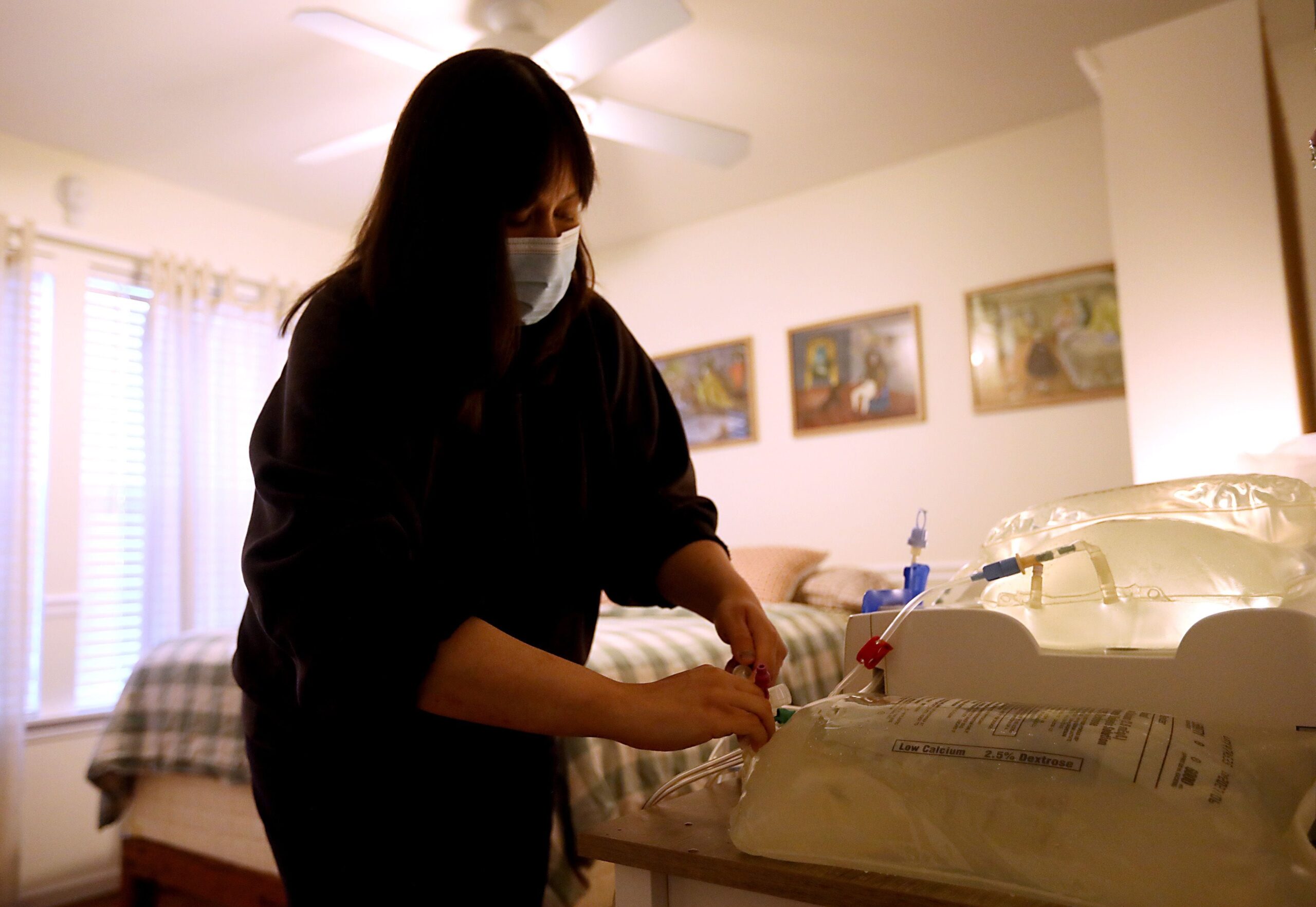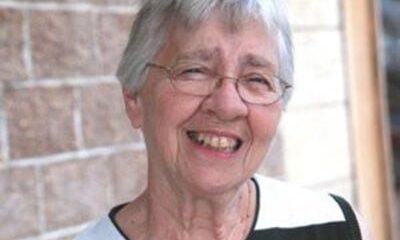Health
Lakemoor Woman Battles Kidney Failure, Seeks Living Donor

Nicole Leonard, a 32-year-old woman from Lakemoor, Illinois, is facing a life-altering health crisis after being diagnosed with kidney failure. What began as fatigue and blurry eyesight in December 2022 led to an emergency room visit at Northwestern McHenry Hospital. There, doctors informed her that she was suffering from end-stage renal failure caused by a condition known as focal segmental glomerulosclerosis (FSGS).
FSGS is a disease that causes scarring of the tiny filters in the kidneys, impairing their ability to remove toxins from the body. “They could tell based on the lab results, I was in end-state renal failure,” Leonard explained. Following her diagnosis, she underwent surgery to have a catheter implanted and began immediate dialysis treatment.
Leonard was released from the hospital the following month but now relies on continuous cycling peritoneal dialysis, which she conducts at home each night. For over ten hours, she connects to a machine that requires two six-liter bags of sugar solution. The treatment is both time-consuming and demanding, shaping her daily routine significantly.
She has been on the kidney transplant list for two years, expecting a wait of four to six more years. Initially, she underestimated the urgency and complexity of finding a living donor. “I thought it would be more of an easy process,” Leonard said, reflecting on her earlier assumptions.
To facilitate her search for a donor, Leonard created a website, kidney4nicole.com, and has begun distributing cards to raise awareness. “It takes somebody who is unusually brave and a little crazy and generous beyond the normal margins,” she noted, emphasizing the critical need for a living donor.
Dr. Farhan Bangash, a specialist at the Kidney Care Center in Crystal Lake, highlighted the challenges Leonard faces. “At-home dialysis is not easy by any means,” he stated. Patients must be organized and committed, as their evenings often revolve around the treatment. He noted that for many, dialysis is the final step before a transplant becomes necessary.
Leonard’s situation is particularly striking because she was previously healthy before her sudden decline. “Her kidneys did not recover,” Bangash remarked, underscoring the rapid progression of her condition.
In her quest for a donor, Leonard has reached out to family. Unfortunately, both her parents have health issues that disqualify them as potential donors. Her brothers, while willing to help, cannot take the necessary time away from their own families.
Leonard has also explored transplant options involving individuals who are Hepatitis C-positive, as advancements in medical treatment have made this a viable path. “People used to die of Hep C, but it is curable now,” she explained. However, the growing number of individuals opting into this program has extended wait times, making the search for a living donor even more pressing.
Another concern for Leonard is the longevity of her current dialysis method. “That is something I don’t like to think about,” she admitted. If her current treatment fails, she may need to transition to traditional dialysis, which involves daily clinic visits lasting four to five hours.
To encourage potential donors, Leonard urges anyone interested to visit nmlivingdonor.org. The website outlines the extensive testing procedures to ensure donor safety, allowing individuals to live normal lives post-donation. Bangash reassured that transplant centers perform thorough evaluations to protect donors.
“Studies of living kidney donors report they see it as a positive experience,” he added. For many, donating a kidney becomes a significant part of their identity, instilling a sense of purpose and fulfillment.
In her fight for a second chance at life, Nicole Leonard remains hopeful and determined to find a living donor who can help restore her health.
-

 World3 months ago
World3 months agoScientists Unearth Ancient Antarctic Ice to Unlock Climate Secrets
-

 Entertainment3 months ago
Entertainment3 months agoTrump and McCormick to Announce $70 Billion Energy Investments
-

 Lifestyle3 months ago
Lifestyle3 months agoTransLink Launches Food Truck Program to Boost Revenue in Vancouver
-

 Science3 months ago
Science3 months agoFour Astronauts Return to Earth After International Space Station Mission
-

 Technology2 months ago
Technology2 months agoApple Notes Enhances Functionality with Markdown Support in macOS 26
-

 Top Stories1 week ago
Top Stories1 week agoUrgent Update: Fatal Crash on Highway 99 Claims Life of Pitt Meadows Man
-

 Sports3 months ago
Sports3 months agoSearch Underway for Missing Hunter Amid Hokkaido Bear Emergency
-

 Politics3 months ago
Politics3 months agoUkrainian Tennis Star Elina Svitolina Faces Death Threats Online
-

 Technology3 months ago
Technology3 months agoFrosthaven Launches Early Access on July 31, 2025
-

 Politics3 months ago
Politics3 months agoCarney Engages First Nations Leaders at Development Law Summit
-

 Entertainment3 months ago
Entertainment3 months agoCalgary Theatre Troupe Revives Magic at Winnipeg Fringe Festival
-

 Politics1 week ago
Politics1 week agoShutdown Reflects Democratic Struggles Amid Economic Concerns





















